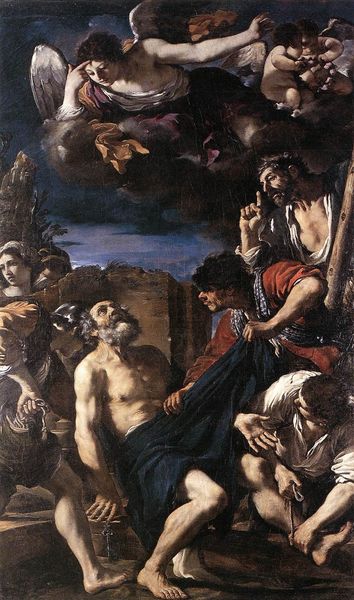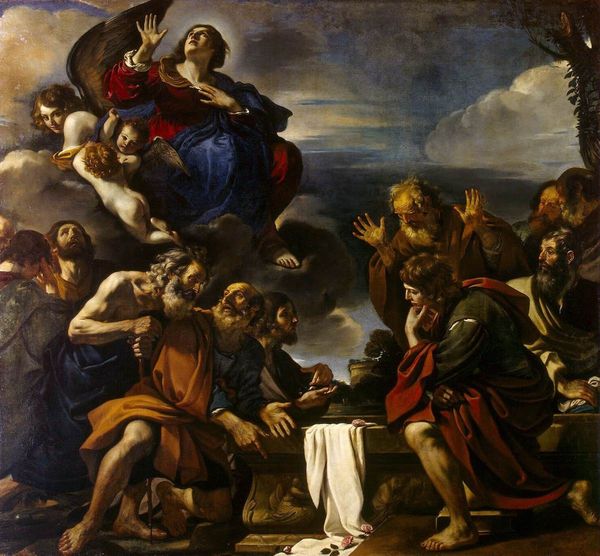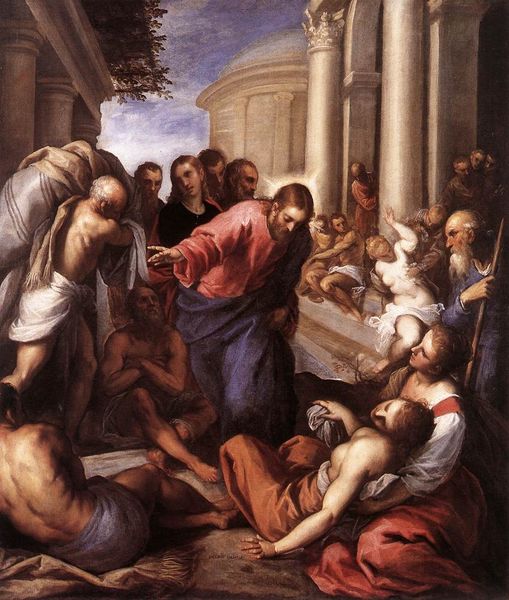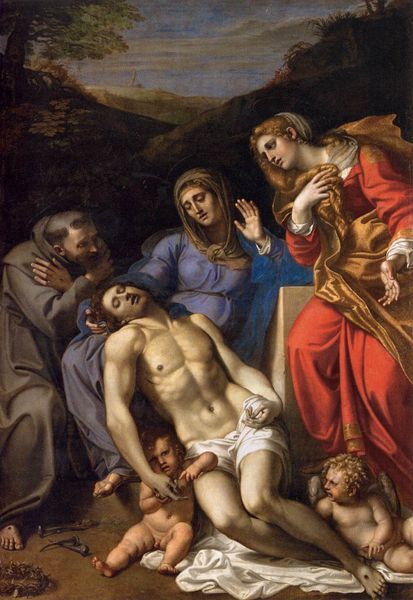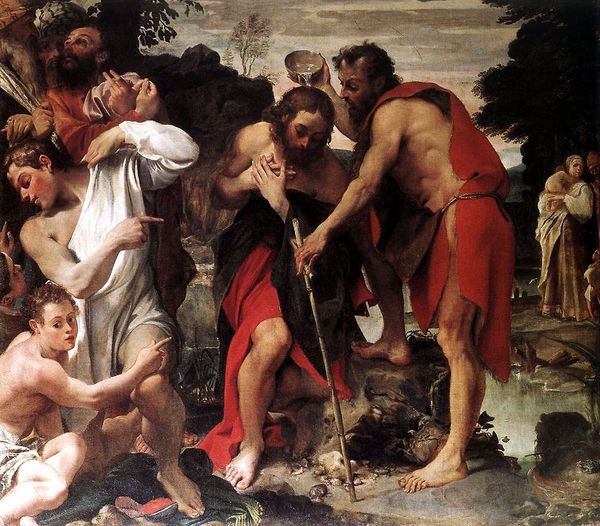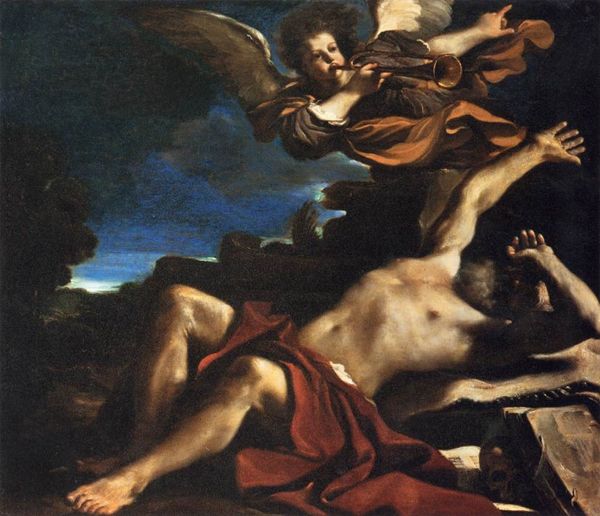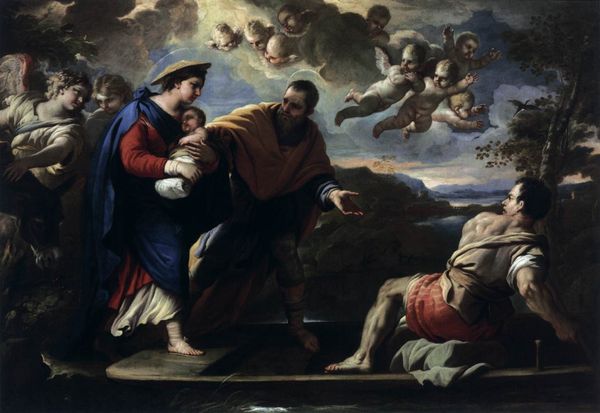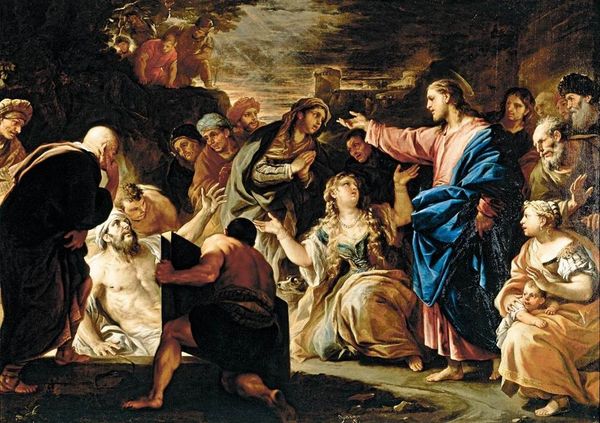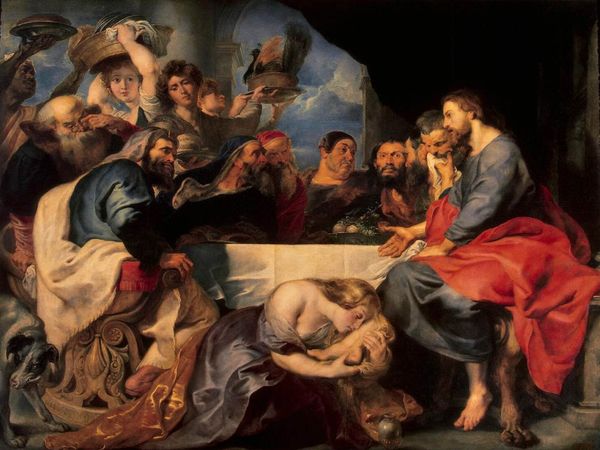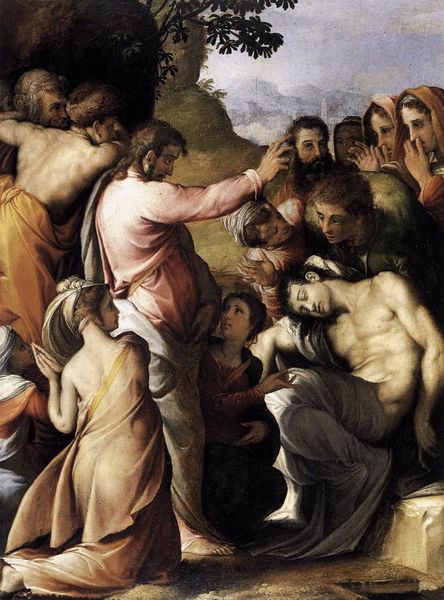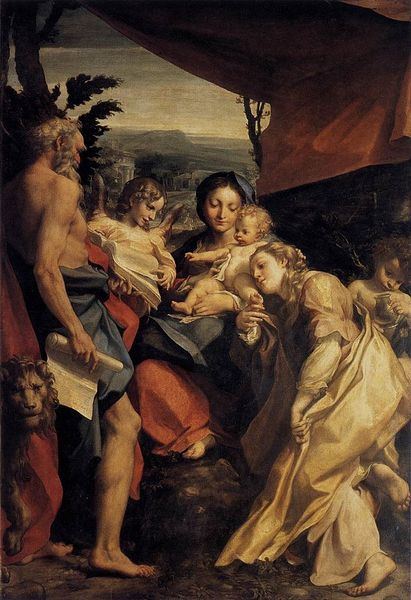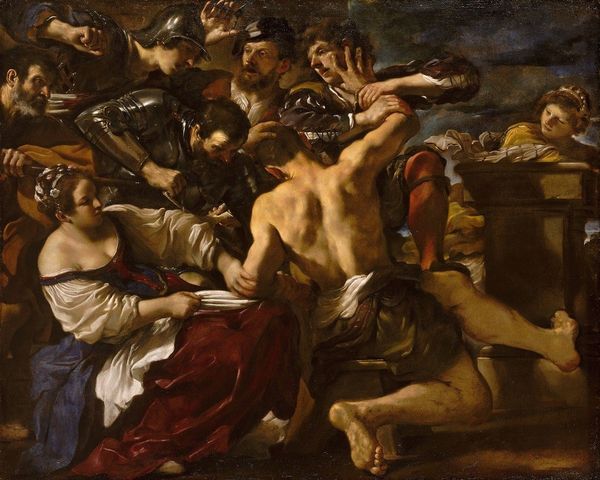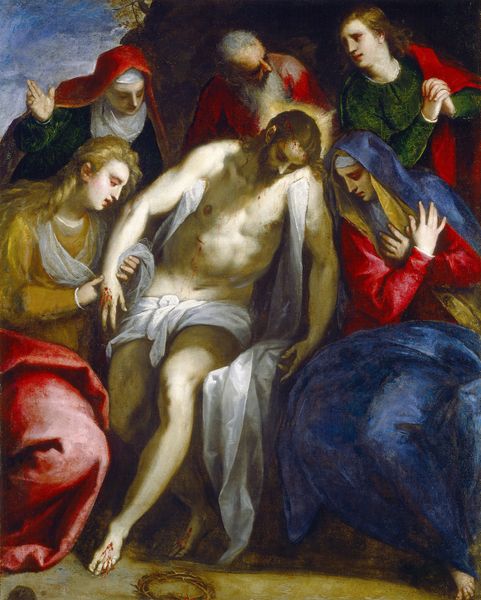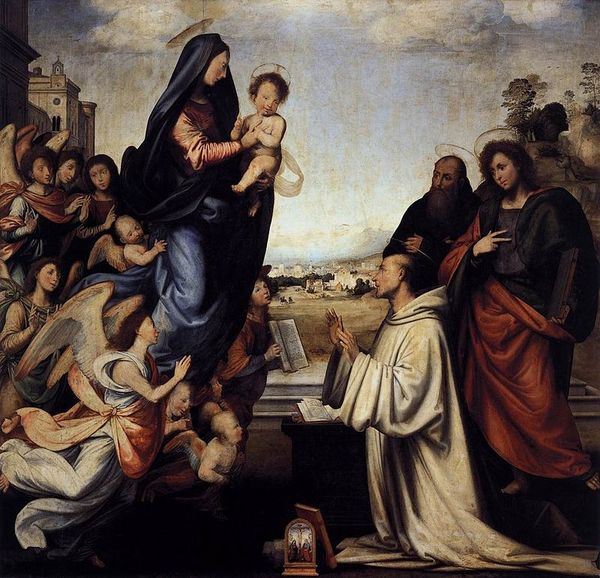
painting, oil-paint
#
narrative-art
#
baroque
#
painting
#
oil-paint
#
figuration
#
oil painting
#
mythology
#
history-painting
Dimensions: 201 x 233 cm
Copyright: Public domain
Curator: What a dramatic scene! A body bathed in light, the awkward scramble of men unwrapping Lazarus… it feels both sacred and incredibly… physical. Editor: Indeed! We are looking at Guercino's "Raising of Lazarus," completed around 1619. This oil painting, now residing at the Louvre, depicts a pivotal scene from the Gospel of John. It’s Baroque, brimming with dynamic tension and emotional fervor. Curator: Baroque, yes. The light is incredible – pouring over Lazarus’s torso but leaving others in shadow. It’s almost theatrical, like a spotlight hitting center stage. Did the artist have a spiritual revelation painting this? The composition feels intuitively balanced and charged. Editor: There's certainly a strong engagement with the Counter-Reformation. The drama serves not just spectacle, but to emphasize divine power overcoming the most fundamental of human limits—death. Think about how this story also mirrors concerns about social and spiritual redemption prominent in that period. Curator: Absolutely, redemption! Though the faces, even of Jesus, strike me as human. The struggle to release Lazarus… those straining arms… it’s a grounded miracle. It’s like he's capturing both the wonder and the grit. Editor: Look at those figures in the background, though. They symbolize the doubting and questioning, the observers who need to witness in order to believe. And note how the female figures represent grief and mourning—emotions central to the scene’s power. The performance of witnessing plays out around Lazarus, who is essentially a prop in that economy of faith. Curator: A prop… yes and no. Lazarus might be passive here, but his stillness, his vulnerability... there’s a weight to that, a mystery beyond faith or narrative. What if we imagined Lazarus, the subject of resurrection. It all loops back to how profoundly unsettling that idea can be for any of us. Editor: Ultimately, Guercino offers not just a depiction of a miracle but an investigation into the human condition. Curator: True. He has woven mystery, emotion, and raw physicality into one timeless scene. It's haunting in the best way.
